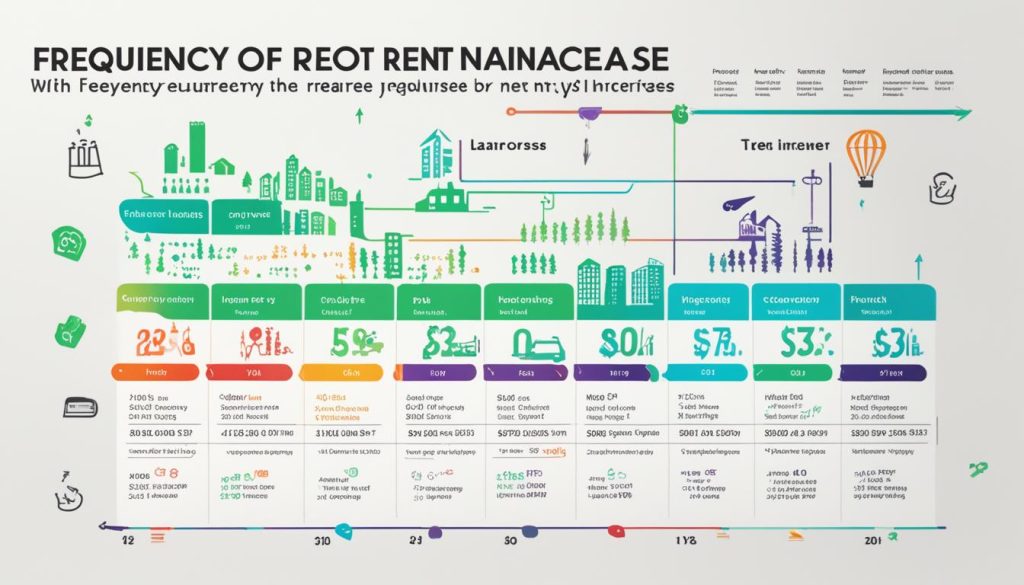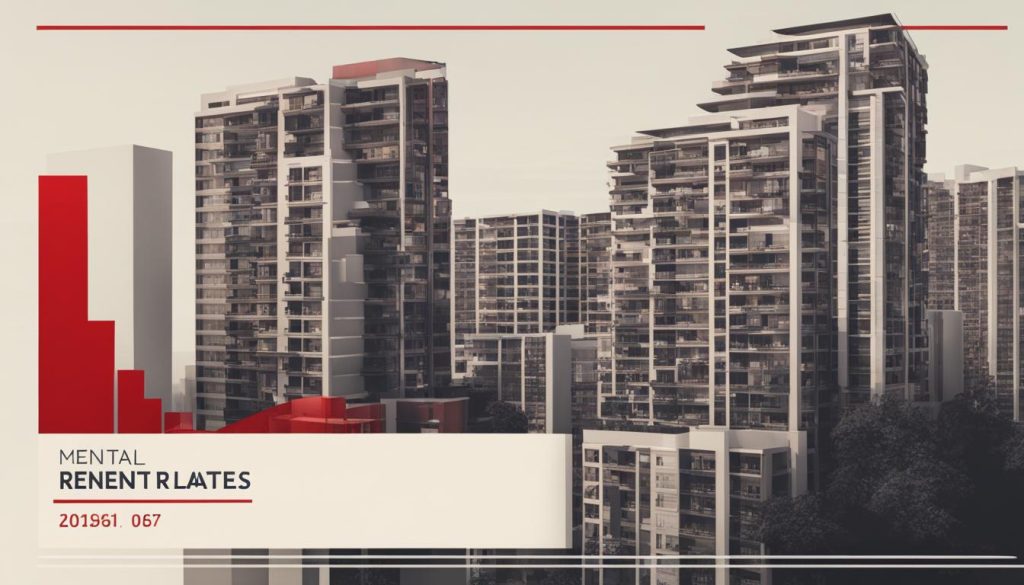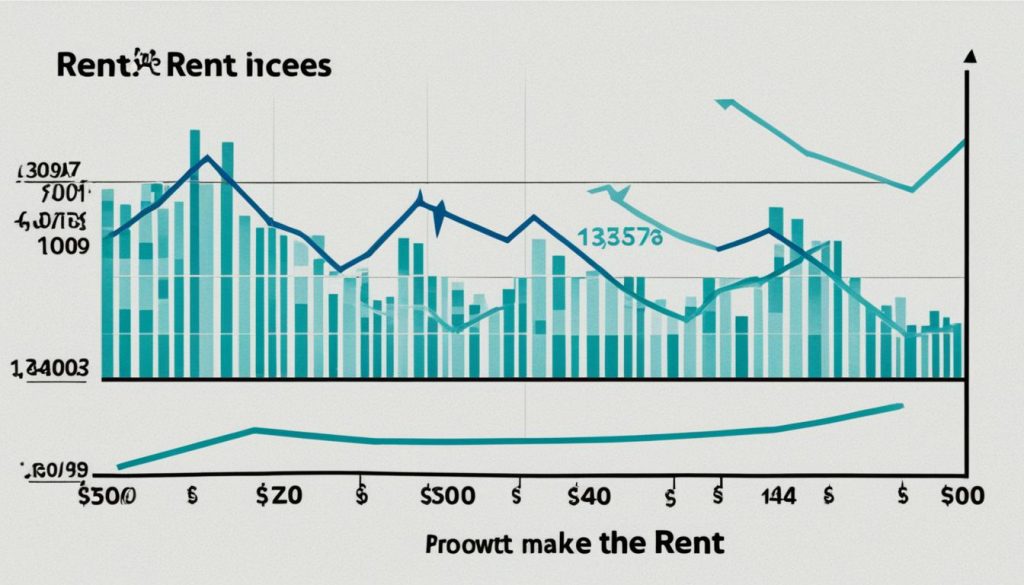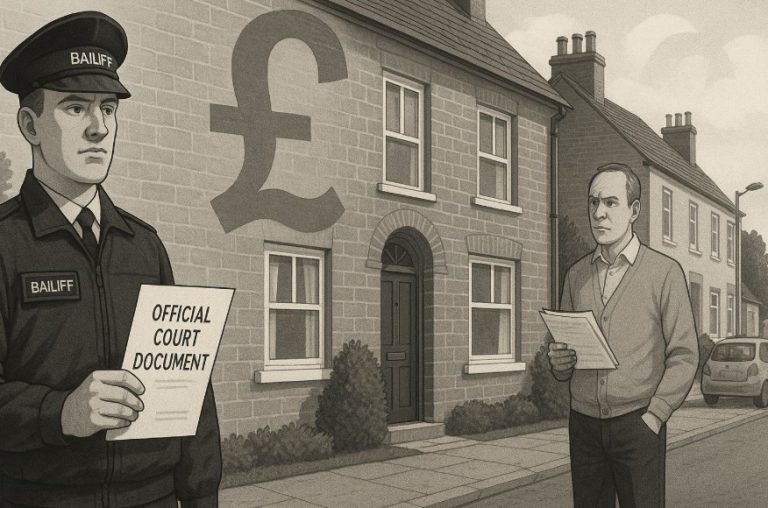Are you a tenant in the United Kingdom? Are you wondering how often your landlord can legally increase the rent? Look no further! In this article, we will dive into the rules and regulations surrounding rent increases, ensuring you have a clear understanding of your rights and responsibilities as a tenant.
Rental Agreements and Rent Review Policy
When it comes to understanding how rent increases are influenced, rental agreements and rent review policies play a crucial role. These documents outline the terms and conditions between landlords and tenants, providing the framework for maintaining a harmonious landlord-tenant relationship.
A lease agreement is a legally binding contract that defines the rights and responsibilities of both parties. It specifies important details such as the duration of the tenancy, the rental amount, payment frequency, and any additional charges or conditions.
Specific clauses govern rent increases within a lease agreement. These terms stipulate the conditions under which a landlord can review and adjust the rental rates. Tenants should carefully review these terms to understand their rights and obligations.
Additionally, a rent review policy outlines the process and frequency at which landlords may reassess and change rental rates. These policies provide guidance on rental rate changes and ensure transparency in the rent adjustment process. They typically consider factors such as local market conditions, inflation rates, and other relevant economic indicators.
Changes in rental rates can occur for various reasons, including fluctuations in the housing market, changes in demand and supply dynamics, or the need to cover maintenance and operational costs. Understanding the factors that can lead to rental rate changes is essential for both landlords and tenants.
| Factors Influencing Rental Rate Changes | Effect on Rent |
|---|---|
| Market Demand | Increase or decrease depending on demand levels. |
| Inflation | May result in incremental rent adjustments to account for rising costs. |
| Maintenance and Upgrades | If significant investments are made to improve the property, rent increases may be justified to cover the expenses. |
| Local Regulations | Changes in local housing laws and regulations can impact rental rates. |
How Often Can Landlord Increase Rent? – Frequency of Rent Increases
As a tenant, it’s crucial to be aware of how often a landlord can increase your rent and the regulations that govern rent increase frequency. By understanding the rules, you can better anticipate and prepare for potential rent hikes.
In the United Kingdom, the frequency of rent increases is determined by legal guidelines and regulations. Landlords must adhere to these rules to ensure a fair and transparent rental agreement. The specific time intervals between rent increases vary depending on various factors, including the type of tenancy and the terms outlined in the lease agreement.
While there is no set limit on how often a landlord can raise the rent, it must be done within the parameters of the law. The most common practice is to raise the rent at the end of the fixed term of a tenancy agreement or during a periodic tenancy.
The Role of Lease Agreements
The terms and conditions outlined in the lease agreement play a significant role in determining the frequency of rent increases. These agreements typically include information on how and when the landlord can adjust the rent. It’s essential to carefully review the lease agreement to understand the specific terms related to rent increases.
Factors Influencing Rent Increase Frequency
Several factors can influence how often a landlord may increase the rent:
- Economic conditions: Landlords may raise the rent more frequently in areas with high demand and low supply of rental properties.
- Inflation and market rates: Rent increases may be aligned with inflation rates or market rental rates.
- Local housing market: Changes in the local housing market can impact rent increase frequency
It’s important to note that landlords must provide proper notice before raising the rent. The notice period varies depending on the type of tenancy and is typically outlined in the lease agreement. This allows tenants to assess their options and make informed decisions.

Understanding the frequency with which landlords can raise the rent empowers tenants to plan their finances accordingly and anticipate potential changes. By familiarizing yourself with the regulations and factors that determine rent increase frequency, you can navigate the rental market with confidence.
Tenancy Renewal and Rent Adjustment
When it comes to renewing a tenancy contract, both landlords and tenants need to consider the impact it may have on rent adjustments. It is essential to understand the guidelines and best practices for negotiating rent changes during the renewal process.
One key consideration is the rent adjustment guidelines provided by relevant housing authorities. These guidelines serve as a reference point for landlords and tenants, ensuring that any proposed rent adjustments are fair and reasonable.
During the tenancy renewal stage, landlords often assess the current market conditions and evaluate the demand for rental properties in the area. They may also take into account any changes in property expenses or improvements made to the rental unit.
Tenants, on the other hand, need to be well-informed about the current rental market. Conducting research and understanding the average rental prices in their area will enable them to negotiate effectively during the renewal process.
Open communication between landlords and tenants is crucial in determining a fair rent adjustment. Landlords should provide clear explanations for any proposed increase, taking into consideration the tenant’s financial circumstances. Tenants, in turn, should express any concerns they may have regarding the proposed rent adjustment.
By following established guidelines and maintaining open dialogue, landlords and tenants can work together to reach a mutually beneficial agreement. Tenants can secure a reasonable rent increase, and landlords can ensure a steady rental income that reflects the market conditions.

| Guidelines for Tenancy Renewal and Rent Adjustment | Landlord Considerations | Tenant Considerations |
|---|---|---|
| 1. Review rent adjustment guidelines provided by housing authorities. | Assess current market conditions and property expenses. | Research the average rental prices in the area. |
| 2. Communicate openly with tenants about proposed rent adjustments. | Explain the reasons for the rent increase and consider the tenant’s financial circumstances. | Express any concerns about the proposed rent adjustment. |
| 3. Negotiate in good faith to reach a fair and reasonable agreement. | Consider tenant’s history and the value they bring as a reliable occupant. | Understand the impact of the proposed rent adjustment on personal finances. |
Landlord’s Right to Raise Rent
When it comes to rental properties, landlords have the right to increase the rent within the confines of the law. However, there are specific criteria and conditions that must be met in order to ensure that tenants are protected from unjustified or excessive rent hikes.
Understanding Rent Adjustment Guidelines
Landlords must follow rent adjustment guidelines set by local authorities or governing bodies. These guidelines outline the permissible reasons and limits for rent increases, ensuring that landlords cannot arbitrarily raise the rent without a valid cause.
Common rent adjustment guidelines may include factors such as inflation rates, changes in the local housing market, and the condition of the property. Landlords must consider these factors and adhere to the guidelines when proposing rent hikes.
Transparent Communication and Proper Notice
Before increasing the rent, landlords are required to communicate the changes to their tenants in a timely and transparent manner. This ensures that tenants have sufficient notice and can make informed decisions regarding their living arrangements.
Proper notice periods for rent increases may vary depending on the tenancy agreement, but it is essential for landlords to abide by these notice requirements to maintain a fair and respectful landlord-tenant relationship.
Valid Reasons for Rent Increases
| Reason | Description |
|---|---|
| Inflation | Increasing costs of living and goods justify a proportional rent adjustment. |
| Property improvements | Significant enhancements or renovations to the property may warrant a rent increase. |
| Market demand | If there is a high demand for rental properties in the area, landlords may adjust rent to reflect market value. |
| Utilities and services | If the landlord provides additional utilities or services that were previously not included in the rent, an adjustment may be necessary. |
It is important for landlords to remember that these reasons must be justifiable and reasonable. Excessive or unwarranted rent increases can lead to dissatisfaction among tenants and potential legal issues.
By understanding the landlord’s right to raise rent and the associated rent adjustment guidelines, both landlords and tenants can navigate the rental market with clarity and fairness.

Understanding Periodic Rent Hikes
Periodic rent hikes are an important aspect of the rental market that tenants should be aware of. These increases in rent can have a significant impact on a tenant’s budget and financial planning. In this section, we will explore the factors that may trigger periodic rent hikes, as well as provide insights into the frequency of rent increases.
The Factors Behind Periodic Rent Hikes
There are various factors that can contribute to periodic rent hikes. One key factor is the changes in the local housing market. When the demand for rental properties outweighs the supply, landlords may capitalize on the opportunity to increase rent. Similarly, if property values in the area experience substantial appreciation, landlords may adjust the rent to align with the market value.

In addition to market factors, inflation rates also play a role in periodic rent hikes. Inflation refers to the general increase in prices over time, which affects the overall cost of living. Landlords may adjust rent to compensate for the rise in costs associated with property maintenance, repairs, and other expenses.
The Frequency of Rent Increases
The frequency of rent increases varies depending on several factors:
- Lease agreement terms: The terms outlined in the lease agreement between the landlord and tenant dictate how often the rent can be increased. Some lease agreements may specify a fixed term with rent adjustments only at the end of the lease, while others may allow for increases at regular intervals.
- Rent adjustment guidelines: Local regulations and guidelines set by housing authorities may also impact the frequency of rent increases. These guidelines aim to strike a balance between protecting tenants from excessive rent hikes and allowing landlords to make reasonable adjustments.
By understanding both the factors behind periodic rent hikes and the frequency of rent increases, tenants can be better prepared to navigate the rental market. It is essential for tenants to review their lease agreements carefully and stay informed about local housing regulations to understand their rights and responsibilities.
Conclusion
Throughout this article, we have delved into the rules and regulations surrounding rent increases in the United Kingdom. Understanding the rights and responsibilities of both landlords and tenants is crucial in ensuring a fair and transparent rental agreement.
By familiarizing yourself with the guidelines provided for rent adjustments, you can navigate the rental market with confidence. Lease agreements and rent review policies play a crucial role in determining the frequency of rent hikes and the potential for rental rate changes.
Whether you are a landlord or a tenant, it is vital to be aware of the legal limits associated with rent increases. This knowledge empowers tenants to prepare for potential periodic rent hikes and protects them from unjustified or excessive increases.
In conclusion, following the rent adjustment guidelines and understanding the intricacies of lease agreements are essential for maintaining a harmonious landlord-tenant relationship. By doing so, you can ensure a fair and favorable rental experience that benefits both parties in the long run.
FAQ
What terms are usually outlined in lease agreements regarding rent increases?
Lease agreements typically include provisions regarding rent increases. These terms often specify the notice period required for rent adjustments, the maximum percentage or amount by which the rent can be increased, and the timeframe between each increase. It is advisable for tenants to carefully review these clauses before signing a lease to fully understand their rights and obligations.
Are there guidelines that landlords must follow when adjusting the rent?
Yes, landlords must adhere to specific guidelines when adjusting the rent. These guidelines may vary depending on the location, but they generally include providing proper notice to tenants, ensuring the increase is within the legal limits, and justifying the need for the adjustment based on market rates or other factors. It is crucial for landlords to familiarize themselves with the local regulations and seek legal advice if necessary.
Does tenancy renewal affect rent adjustment?
Tenancy renewal can be an opportunity for rent adjustment negotiations between landlords and tenants. The terms and conditions regarding rent adjustments may be addressed during the renewal process, allowing both parties to discuss and potentially reach an agreement on any desired changes to the rental amount. It is important for tenants to be aware of their rights and communicate their preferences regarding rent adjustments during the renewal process.
Do landlords have the right to raise the rent arbitrarily?
No, landlords do not have the right to raise the rent arbitrarily. Rent increases must be justified and follow the guidelines set by the local regulations. Landlords are typically required to provide proper notice, follow the legal limits regarding the percentage or amount of increase, and consider factors such as market rates and the condition of the property. Tenants have the right to challenge rent increases that do not adhere to these guidelines.
What triggers periodic rent hikes?
Periodic rent hikes may be triggered by various factors, including changes in the local housing market, inflation rates, and the condition of the property. Landlords may increase the rent periodically to align it with current market rates or to account for maintenance and improvement costs. It is important for tenants to understand these factors and be prepared for potential rent increases during their tenancy.






